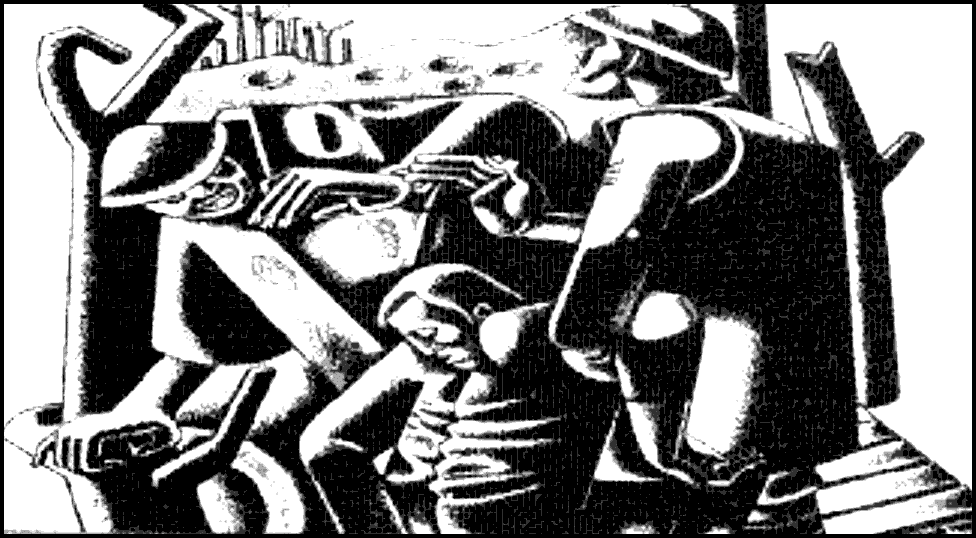
Retreat
A Story of 1918
Charles R. Benstead
(The University of South Carolina Press)

Elliot Warne is a volunteer pastor in France near the end of World War One. He is what Samuel Johnson would call a "prig" --- a middle-aged nabob who scarcely ever smiles, hardly communicates with the men of the Fourth Brigade of the Fifth Army, those he is supposed to be ministering to.His brigade had been given the unenviable task of fending off what turned out to be the last attempted break-through on the Western Front. In the Spring of 1918, the German army under General Erich Ludendorff mounted a massive offensive and almost succeeded in cutting through to Paris. (The French Army was supposed to support the defending English; they were busy elsewhere).
This is an interesting novel, published twelve years after the end of hostilities. But it is more 1969 than 1930. The author is at his best in showing the harshness of being on the front lines day-to-day, the psychological effect of constant shelling, the dust, the hunger, the wet, the dying ... and, ultimately, the comradeship.
Even as Rev. Warne is falling to pieces, he reflects, "the virile comradeship that knit them together appeared the most beautiful thing he had so far encountered in France."
His one desire was to share in this closeness between men.
It is not to be --- possibly because Warne showed his cowardice the very first night on the front. He suffered an attack of panic, was unable to hide it: "Dalgith found him upon his bunk, crouched there in an extremity of terror that bordered on paralysis, his head thrust quite unnecessarily in a gas-mask."
[Dalgith] had to do everything. He dressed him and buttoned up his braces. He knelt down and forced on his boots. He had to fix the strap of his helmet and even shove the mouthpiece of his respirator in his teeth.
"And when he had finished he took him by the arm and more or less dragged him away."
§ § § Rev. Warne could have been forgiven his panic if he were like Fleming, the "padre" the next battalion over, one who would visit the front, "picking his way alone across the horrors of Ypres' battlefield, staff in hand, a black cassock hiding his uniform, and on top of all, steel helmet and gas mask, in order to brighten if only for a few minutes the ghastly existence of those who fought and died in Flanders' mud. A man, that --- and a Christian, who never spoke of religion and yet irradiated his Faith."
But Warne is a man infected by his religion. He sees war "as a punishment for the blasphemers." When the men take a break behind the front, dallying with some young ladies in the countryside, he growls: "Those men prefer a painted woman to communion with God."
"Quaint, you call it?" ... and bitterness lurked in his voice. "I should have called it scandalous --- filthy."
This is not a man who forgives. Thus he becomes an easy target of ridicule for the men, gives little or no comfort to them. Retreat is thus a religious novel, succeeding mostly because it gives an exacting portrait of trench warfare, with its grisly acceptance by grunt-soldiers ... its wearing nature, with occasional bursts of heroism and nobility, and, finally, the effect of warfare on one's soul.
There are hints of existentialism, here played out by the author two full decades before Miguel de Unamuno and Kierkegaard. Benstead writes, "He harkened back to O'Reilly's often repeated elucidation of the theological riddle, the possibility of a Christian who did not believe in God."
§ § § Warne gets it in the end. He is so distant from what surrounds him that he does not see his first corpse for several weeks. He learns slowly what those at the front learned immediately: that wars are holocausts, and those in charge of the governance of war end up overseeing a ruination of generations. They have created a machine that will chew up and spit out the young and the beautiful.
This is the pastor's vision of a dead soldier. "A young fellow, little more than a boy, he could see. His death mask was not like the others. There was no surprise, no terror, no impress of death's reception here. The boy's expression was quite calm, in a way serene. Only the eyes were unquenched, and they were filled with reproach." This recognition of death pushes Warne over the edge:
Keller recoiled before the two horrible eyes that focused themselves upon him. They rolled. They shone with the light of madness
"Unbridled at last, his voice rose to the frenzied scream he had so long feared. And thus he denied his God."
--- Gloria Ledesma